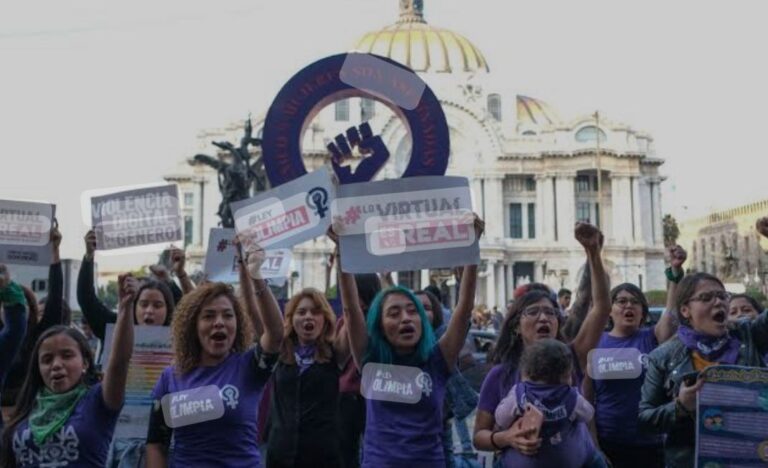
This is Her Story
The Chamber of Deputies approved the inclusion of digital violence in the Law on Women’s Access to a Life Free from Violence. This is the story of the ‘Olimpia Law,’ where it all began:
At 18 years old, Olimpia Coral Melo Cruz encountered cruelty. She had been in a relationship with her boyfriend for six years and trusted him enough to record themselves having sex. However, without knowing how or when, that video started to go viral, and he was the first to leave her alone. He was too ashamed to admit it was him who was with her, insinuating that she was cheating on him.
First Blow.
In her small town of Huauchinango (Puebla), everyone knew that Olimpia had made that video, not only because it circulated from phone to phone but also because various websites and newspapers began to publish it. “They were profiting from my body, and they titled it that I was being burned on social media. Everyone referred to me as the ‘Gordibuena of Huauchinango.’ The video spread so much that I ended up being the ‘Gordibuena of Puebla,'” she explained in an interview with the BBC.
Second Blow.
Olimpia felt trapped: she couldn’t report anything because she had agreed to record herself naked, and no one wanted to listen to her. Confined to her home for most of the time, Olimpia attempted suicide three times. Her mother, an indigenous woman with little education, knew nothing about the Internet, and Olimpia’s greatest fear was that she would find out what had happened. But the dreaded day came: Olimpia’s brother confirmed with a cellphone in hand that she was in that video everyone was talking about.
Third Blow.
Devastated, Olimpia knelt down and apologized to her family, feeling extremely guilty, but to her surprise, her mother was the first to support her and made her aware that she hadn’t committed any crime. She declared in an interview with the BBC:
“Everyone has sex. Your cousin has sex, your sister has sex, and I do too. The difference is that people see you having sex. That doesn’t make you a bad person or a criminal. You just enjoyed your sex life—like anyone else—and there’s proof of that. It would be shameful if you had stolen or killed.”
At that moment, Olimpia’s story took an unexpected turn. Even though she was still isolated and ashamed, her perspective on what had happened changed: she was not guilty for the video’s dissemination. She was a victim of a type of harassment that she couldn’t define but felt was clearly an abuse.
At the Public Prosecutor’s Office, the police officer on duty mocked her, saying that since she wasn’t drunk or high, there was no violation, and according to the Penal Code, there was no crime in recording consensual sex.
Indignant but convinced there was a crime, Olimpia contacted other women who, like her, had faced mockery and humiliation due to intimate images spread online without their consent. They studied the issue thoroughly and understood that sexting is a sexual right, as you freely choose to record yourself naked. What is a crime is sharing those images without consent.
They worked on a reform to recognize cyber sexual violence. Olimpia vividly remembers the day in March 2014 when she presented herself at the Municipal Palace of Puebla during a Citizens’ Proposals Forum and clearly spoke about her experiences and how they could be punished with a law.
Despite facing obstacles and opposition, these women created their National Front for Sisterhood and continued pushing for the legal proposal, which today is known as the “Olimpia Law.” It includes three key points:
- Recognition of crimes against privacy: Sharing intimate content without consent.
- Cyber harassment: Sexual violence online.
- Access Law: Ensuring public institutions understand sexual rights and provide education.
For Olimpia, it is crucial that young people know they can have a safe online sexual life.
The ‘Olimpia Law’ was first approved in Puebla, and today it is included in the legislation of 13 states in Mexico.
Today, digital violence is recognized as a form of aggression against women, as outlined in the General Law on Women’s Access to a Life Free from Violence.
I am no longer “the Gordibuena.” Now my name is associated with a law that punishes online abuse.
If you or a family member have been a victim of this crime, do not hesitate to contact Lic. Jorge Fernández at 686.2.55.85.32 to find a solution to this issue.